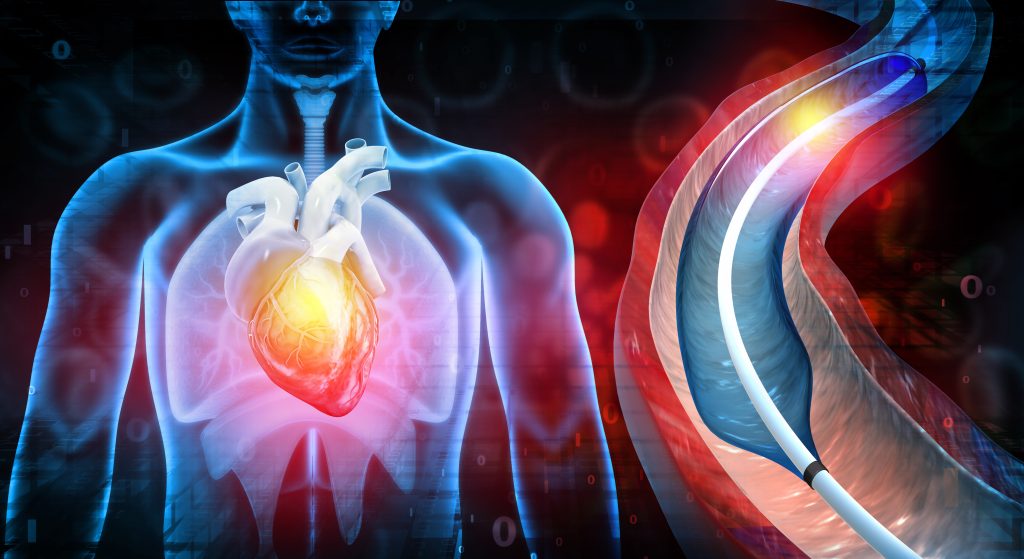Avoid heart disease with Cardiology care: A proactive approach
Avoid heart disease with Cardiology care: A proactive approach
Blog Article
Comprehending the Value of Cardiology in Modern Health Care Providers
Cardiology plays an essential duty in modern-day healthcare, particularly as cardiovascular disease remains to be the leading reason for mortality worldwide. Advancements in diagnostics and treatment have transformed patient treatment, making it possible for earlier treatments and boosted end results. In addition, the change towards precautionary cardiology empowers individuals to handle their wellness proactively. As technology continues to progress, the combination of ingenious services may better redefine cardiology's influence on public health and wellness, triggering a closer examination of arising patterns and their implications.
The Prevalence of Heart Condition and Its Effect On Public Health
Heart condition stays the leading reason of death globally, its influence extends much beyond specific clients to influence public health and wellness systems and economies. The high occurrence of heart disease positions a considerable pressure on health care sources, necessitating raised funding for rehab, therapy, and avoidance programs. Public health and wellness campaigns must attend to threat elements such as excessive weight, smoking, and inactive way of livings, which add significantly to the increasing occurrence of heart conditions.Moreover, the economic concern connected with cardiovascular disease is immense, including not just straight clinical costs but likewise indirect expenditures connected to lost efficiency and premature death. Areas encounter challenges in managing these expenses, commonly leading to disparities in healthcare gain access to and results. As the population ages and lifestyle-related dangers remain to rise, the necessity for reliable cardiology treatments comes to be paramount. Consequently, dealing with heart disease is not only a matter of individual health but also a crucial public wellness concern.
Advances in Heart Diagnostics and Imaging Techniques
Current improvements in cardiac diagnostics and imaging techniques have reinvented the area of cardiology, improving the ability to spot and monitor cardiovascular disease. Strategies such as heart MRI, CT angiography, and echocardiography have come to be significantly advanced, offering detailed pictures of cardiac structures and features. These modalities enable the very early identification of problems like coronary artery illness, cardiac arrest, and valvular disorders.Moreover, innovations in non-invasive diagnostics, such as wearable innovation and remote monitoring tools, have encouraged individuals and doctor. These devices facilitate real-time monitoring of heart rhythms and other crucial indications, leading to timely treatments. Additionally, expert system is being incorporated into imaging evaluation, improving accuracy and performance in diagnosis.
Technologies in Treatment Choices for Heart Conditions
Recent innovations in cardiology have caused significant developments in therapy options for heart disease. These consist of advanced surgical strategies that enhance procedural results and arising medications that use brand-new avenues for therapy. As the area advances, these developments play a crucial duty in improving client treatment and end results.
Advanced Surgical Techniques
Innovations in surgical methods have actually changed the landscape of cardiology, offering new hope for clients with heart problems. Minimally intrusive treatments, such as catheter-based treatments, have significantly decreased healing times and health center keeps. Techniques like robotic-assisted surgery enhance precision, allowing cosmetic surgeons to browse complicated physiological frameworks with higher accuracy. Innovations in imaging modern technology promote real-time visualization throughout treatments, boosting end results. Transcatheter aortic shutoff replacement (TAVR) exemplifies an advancement in treating aortic stenosis, making it possible for shutoff substitute without open-heart surgical treatment. Furthermore, hybrid methods that combine catheter-based and medical methods supply tailored solutions for various heart problems. These sophisticated surgical strategies not just enhance patient safety and security yet likewise expand therapy choices, highlighting the crucial role of technology in contemporary cardiology practices.
Arising Treatments and medicines
As the landscape of cardiology proceeds to progress, emerging drugs and therapies play a pivotal duty in improving therapy choices for heart conditions. Advancements such as novel anticoagulants and progressed lipid-lowering agents have actually transformed the administration of cardiovascular illness, significantly lowering client morbidity and death. Furthermore, the growth of gene treatments and regenerative medicine uses promising opportunities for dealing with conditions formerly deemed permanent. Clinical trials are consistently revealing the effectiveness of these treatments, pushing the limits of typical treatments. The integration of digital wellness modern technologies helps with individualized medication, permitting for tailored treatment plans based on genetic and way of life aspects. Jointly, these advancements underscore the dynamic nature of cardiology, improving client results and redefining requirements of treatment in contemporary healthcare.
The Duty of Preventive Cardiology in Patient Care
Precautionary cardiology plays a crucial duty in person treatment by focusing on the recognition of threat factors that contribute to heart problem. Through lifestyle modification strategies and early discovery strategies, medical care providers can effectively reduce the occurrence of cardio events - Cardiologist near me. This proactive approach not just boosts individual results however also advertises lasting health and wellness
Danger Element Identification
While heart diseases stay a leading root cause of morbidity and death worldwide, efficient danger factor recognition functions as a cornerstone of preventive cardiology. Recognizing danger elements such as hypertension, diabetes, family members, and hyperlipidemia background is vital for very early treatment. Healthcare experts utilize numerous screening approaches to assess these variables, permitting customized precautionary actions. Furthermore, recognizing an individual's lifestyle options, such as smoking cigarettes and physical inactivity, further informs danger assessments. This complete evaluation allows medical professionals to establish tailored care plans intended at mitigating risks. By prioritizing danger variable identification, health care systems can boost patient results and lower the overall concern Read Full Report of heart diseases, ultimately adding to enhanced public wellness strategies and resource allotment.
Way Of Living Alteration Strategies
A wide range of research studies highlights the essential role of lifestyle adjustment techniques in minimizing heart disease threat. These strategies encompass dietary changes, raised physical task, smoking cessation, and weight administration. By taking on a heart-healthy diet plan rich in fruits, vegetables, entire grains, and lean proteins, individuals can reduce cholesterol levels and high blood pressure. Regular physical task reinforces the heart and enhances overall cardio health. Additionally, quitting cigarette smoking considerably reduces the danger of heart illness and boosts healing prices for those with status quo. Weight administration further adds to cardio wellness by alleviating various other risk variables such as diabetes mellitus and high blood pressure. Executing these way of living alters not just promotes private health but additionally acts as a foundation of precautionary cardiology in individual treatment.
Early Detection Methods
Way of life modifications greatly contribute to lowering heart disease dangers, yet they are most effective when coupled with very early discovery methods. Preventive cardiology stresses the value of identifying prospective heart issues prior to they rise right into significant problems. Methods such as high blood pressure tracking, cholesterol testing, and advanced imaging modern technologies like echocardiograms play important functions in evaluating cardio health and wellness. Biomarkers and hereditary testing also enhance the precision of very early detection, enabling customized preventative approaches. Regular heart threat evaluations encourage doctor to intervene proactively, possibly preventing heart assaults and strokes (Cardiologist near me). By integrating these early discovery techniques right into regular care, people can gain from timely way of living treatments and targeted therapies, ultimately boosting results and boosting lifestyle
Integrating Technology Into Cardiology Practices
As improvements in technology remain to reshape various fields, the combination of ingenious tools and systems into cardiology techniques has actually come to be crucial for enhancing client care and end results. Telemedicine platforms permit cardiologists to check people remotely, boosting access to care while reducing the burden on health care centers. Wearable tools, such as smartwatches, make it possible for continual heart rate tracking, signaling both individuals and physicians to possible issues in real-time. Furthermore, expert system (AI) is being utilized to analyze vast quantities of cardiac data, helping in very early diagnosis and individualized treatment strategies. Advanced imaging strategies, consisting of 3D echocardiography, improve visualization of heart frameworks, bring about extra accurate treatments. Digital wellness records (EHRs) enhance person details monitoring, ensuring that cardiologists have prompt access to vital data. With each other, these technical improvements are transforming cardiology, advertising proactive administration and enhanced health results for clients with cardiovascular problems.
The Significance of Individual Education and Involvement
Individual education and learning and interaction play a crucial function in the administration of cardiovascular health and wellness. By equipping patients with expertise concerning their problems, treatment options, and way of life modifications, doctor empower people to take an active duty in their treatment. This proactive strategy can cause enhanced adherence to recommended medicines, dietary modifications, and exercise regimens, eventually decreasing the danger of complications.Engagement likewise cultivates a solid patient-provider relationship, motivating open communication and count on. When patients feel notified and entailed, they are more likely to voice problems and ask concerns, which can result in better professional end results. In addition, educational resources, such as workshops or digital systems, can enhance understanding and advertise self-management methods. Generally, prioritizing person education and learning and engagement is necessary for boosting cardio health, enhancing quality of life, and minimizing healthcare costs connected with heart diseases.
Future Trends in Cardiology and Their Possible Impact

Frequently Asked Questions
What Lifestyle Changes Can Decrease Heart Problem Danger?
The existing inquiry addresses lifestyle changes that can considerably decrease heart problem risk. Dr Garcia. Embracing a balanced diet, taking part in regular exercise, maintaining a healthy weight, managing stress and anxiety, and staying clear of tobacco can significantly boost cardiovascular health and wellness
Just How Can I Acknowledge Very Early Indications of Heart Troubles?
Recognizing early signs of heart issues entails monitoring signs and symptoms such as chest pain, shortness of breath, exhaustion, and irregular heart beat. Timely understanding of these indications can trigger essential medical examination and intervention for much better end results.
What Are the Differences Between Cardiologists and Heart Surgeons?
The differences between cardiologists and heart cosmetic surgeons hinge on their duties; cardiologists mainly manage and identify heart problems through non-invasive techniques, while heart surgeons carry out surgeries to correct structural heart problems. Each plays an essential, distinct role.

Just how Usually Should I Obtain My Heart Health And Wellness Checked?
The frequency of heart medical examination differs based on specific danger elements. Generally, grownups ought to undertake examinations every one to 2 years, while those with current conditions might require even more regular analyses as encouraged by healthcare specialists.
What Function Does Genes Play in Heart Illness Risk?
Genes significantly influences heart problem risk, with domestic patterns indicating acquired conditions. Certain genetics can predispose people to hypertension, cholesterol problems, and other cardiovascular troubles, highlighting the significance of hereditary screening in examining heart health. Heart illness remains the leading cause of fatality globally, Web Site its effect expands far past specific patients to impact public wellness systems and economies. Public health and wellness campaigns should resolve risk elements such as excessive weight, smoking, and inactive way of lives, which add greatly to the increasing occurrence of heart conditions.Moreover, the financial burden associated with heart illness is enormous, incorporating not just direct medical expenses however additionally indirect expenditures related to lost productivity and premature mortality. Precautionary cardiology plays a crucial role in patient care by focusing on the identification of danger aspects that add to heart illness. Man-made knowledge (AI) and equipment learning are enhancing diagnostics and patient monitoring, enabling early detection of heart diseases. The distinctions in between cardiologists and heart doctors exist in their duties; cardiologists largely handle and identify heart problems through non-invasive methods, while cardiac surgeons execute medical procedures to deal with structural heart problems.
Report this page